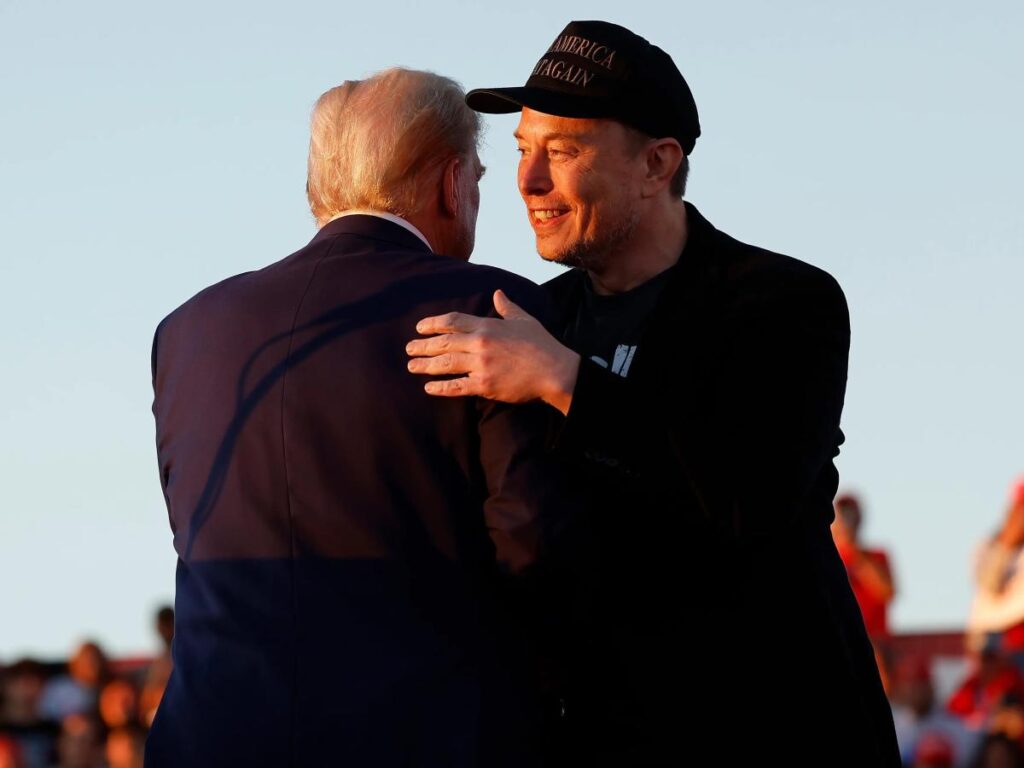Business leaders have had varied reactions to Donald Trump’s recent presidential election victory, showcasing the political divide that exists within Silicon Valley and beyond. Historically leaning towards Democratic candidates, Silicon Valley nonetheless saw significant support for Trump from influential figures such as Tesla CEO Elon Musk and venture capitalist David Sacks. Despite this rightward shift among some tech elite, a large contingent of venture capitalists remained committed to Democratic candidates, demonstrating the complex and often contradictory nature of political affiliations in the tech industry.
Elon Musk emerged as one of Trump’s staunchest advocates during the election. Celebrating Trump’s win even before it was officially called, Musk proclaimed that the former president had been given a “crystal clear mandate for change.” The CEO of Tesla and SpaceX has significant stakes in Trump’s policies, including potential benefits from lower tax rates and deregulation. With prior substantial donations to pro-Trump campaigns and public assertions about the election’s importance for “Western civilization,” Musk’s support indicates a belief that Trump’s administration could favor his business interests.
In contrast, Mark Cuban expressed skepticism about Trump’s second term even as he acknowledged the victory. Describing Trump as a “lousy president,” Cuban had initially supported Biden but later shifted his backing to Kamala Harris as the Democratic nominee. His participation in initiatives like Business Leaders for Harris highlighted the fracture within the business community, where support for varied candidates reflects personal business interests and broader societal concerns. Cuban’s journey exemplifies the ambivalence many leaders feel navigating their public personas and private beliefs amidst a politically charged environment.
Other prominent figures also publicly affirmed their support for Trump. David Sacks, a venture capitalist, echoed Musk’s sentiments, framing Trump’s victory as a remedy for policies he viewed as detrimental under the Biden administration, such as heightened inflation. Meanwhile, Anthony Scaramucci, a communications director under Trump, congratulated both Musk and Trump, recognizing the campaign’s execution. This aligning with Trump’s policies among some business leaders reflects a desire for economic growth and a pro-business stance, often at odds with Democratic platforms focused on social equity and regulation.
While some tech executives celebrated Trump’s win, others maintained their pro-Harris positions while still expressing a desire for cooperation. For example, Aaron Levie, CEO of Box, virtually welcomed Trump while emphasizing engagement with Harris’s campaign, underscoring a dual approach where political alignment does not preclude opportunities for collaboration. Executives such as Jeff Bezos, who did not endorse Trump, expressed hopes for unity and opportunity while navigating their businesses’ relationships with the incoming administration. His controversial decision to prevent The Washington Post from endorsing Harris stirred further public discourse about media influence in elections and the responsibilities of corporate leaders.
As the election night unfolded, a chorus of congratulatory messages flooded in from tech CEOs, including Bill Ackman, Sundar Pichai, and Satya Nadella, indicating a readiness to work with Trump’s administration despite their lack of formal endorsements. This demonstrates a broader trend in which business leaders prioritize economic growth, innovation, and regulatory reform over political affiliations. With such a diverse range of responses, the tech sector remains a pivotal arena for political discourse, reflecting broader societal debates about governance, corporate responsibility, and the role of technology in American life. The election has crystallized these tensions and could shape future collaborations, as leaders grapple with aligning their ambitions with the political landscape ahead.

